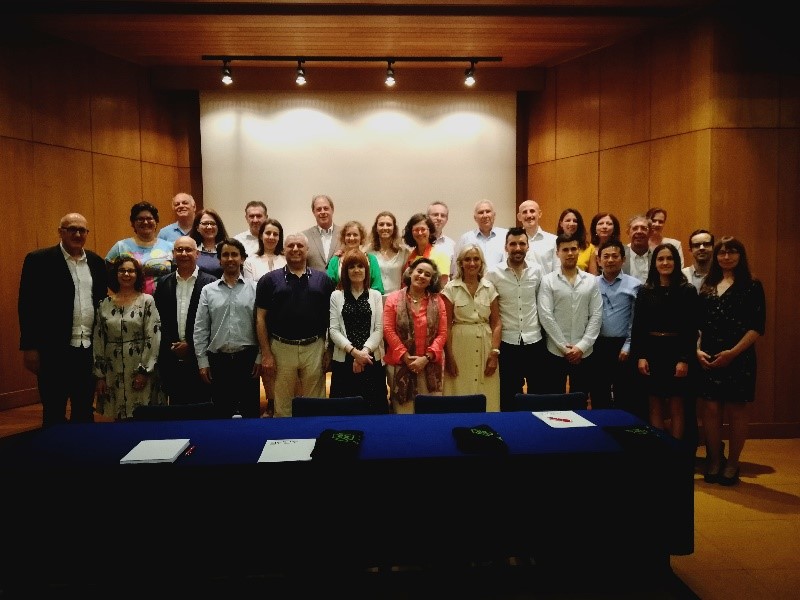Fourth Annual Meeting of the EuroCigua project

This past 30 May 2019, the Fourth Annual Meeting of the EuroCigua project was held in Madeira with the support of the Regional Economic Activities Authority (ARAE) of Madeira, and which was attended by all the coordinators, experts, collaborators and partners of the project.
EuroCigua is a project co-financed by the European Food Safety Authority (EFSA) and coordinated by the Spanish Agency for Food Safety and Nutrition (AESAN). The main objective of the project is to determine the prevalence of ciguatera in Europe and to characterise the risk, developing analytical methods for the detection of the presence of specimens contaminated by ciguatoxins.
During the aforementioned annual meeting, the 15 European organisations belonging to the 6 participating Member States (Spain, Portugal, France, Germany, Greece and Cyprus) shared the progress made in their research over the last year of the project.
The meeting was opened, welcoming all those present, by Dr. Susana Prada on behalf of the Regional Authorities of the Government of Madeira, Dr. Filipa Melo on behalf of the Portuguese Economic and Food Safety Authority (ASAE) and by Dr. Ana Canals, who led the progress of the meeting as the project coordinator and on behalf of the Spanish Agency for Food Safety and Nutrition (AESAN).
All of the coordinators, partners and collaborators of the EuroCigua project were present at the meeting. Among the coordinators were AESAN, the National Epidemiology Centre of the Carlos III Institute for Health (ISCIII), the Institute of Agri-food Research and Technology (IRTA), and the University of Vigo (UVIGO). Among the attending partners, there were representatives from the Canary Islands Healthcare Service, The University Institute of Animal Health and Food Safety - University of Las Palmas de Gran Canaria (IUSA-ULPGC), the Portuguese Economic and Food Safety Authority (ASAE), the Portuguese Institute for the Sea and the Atmosphere (IPMA), the Institute of Forest and Nature Conservation (IP-RAM), the German Federal Institute for Risk Assessment (BfR), IFREMER (France), the State General Laboratory of Cyprus, and the University of Thessaloniki. Additionally, personnel from the Portuguese Directorate of Research and Fishery Services and the Madeira Natural Park, key collaborators in the project, and from the European Centre for Disease Prevention and Control (ECDC), together with a representative from the European Food Safety Authority (EFSA) and two experts in ciguatoxins, one from the University of Texas Marine Science Institute (United States) and one from the National Institute of Health Sciences in Tokyo (Japan) were present. Furthermore, this year’s meeting included a representative from the French Agency for Food, Environmental and Occupational Health and Safety (ANSES) as a new collaborator on the project in 2019.
Each of the participants briefly presented the progress made in their working groups, highlighting that most of the programmed commitments to date have already been developed (surveillance protocol for ciguatera and two specific questionnaires for collecting epidemiological data). Not only that, they continue with the sampling and analysis for the isolation of algae species producing ciguatoxins and subsequent morphological and genetic evaluation. Regarding the identification and quantification of ciguatoxins, the project is successfully developing, and different analytical methods for their detection have been optimised. The studies carried out to date show that the Caribbean ciguatoxin and, in particular, C-CTX1, is the main responsible for the contamination of fish in the Canary Islands and Madeira.